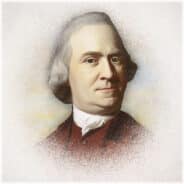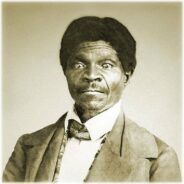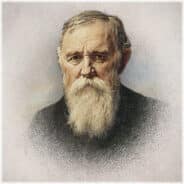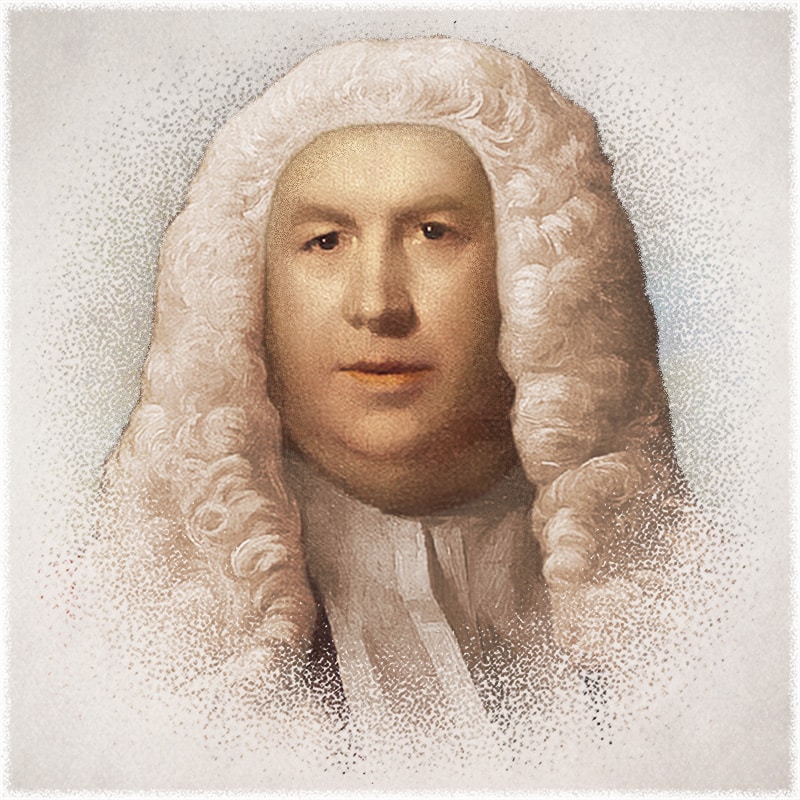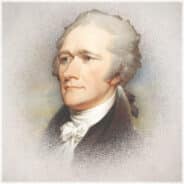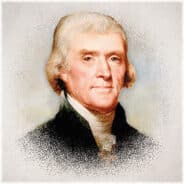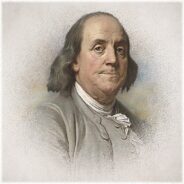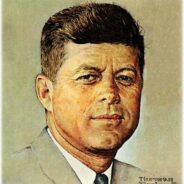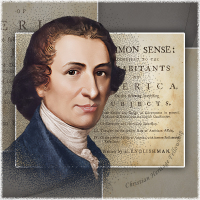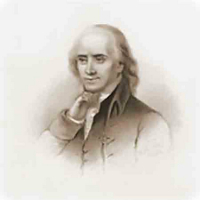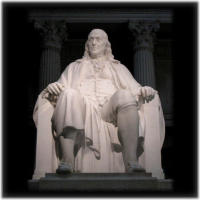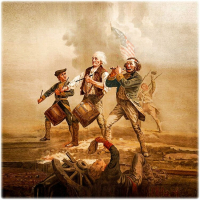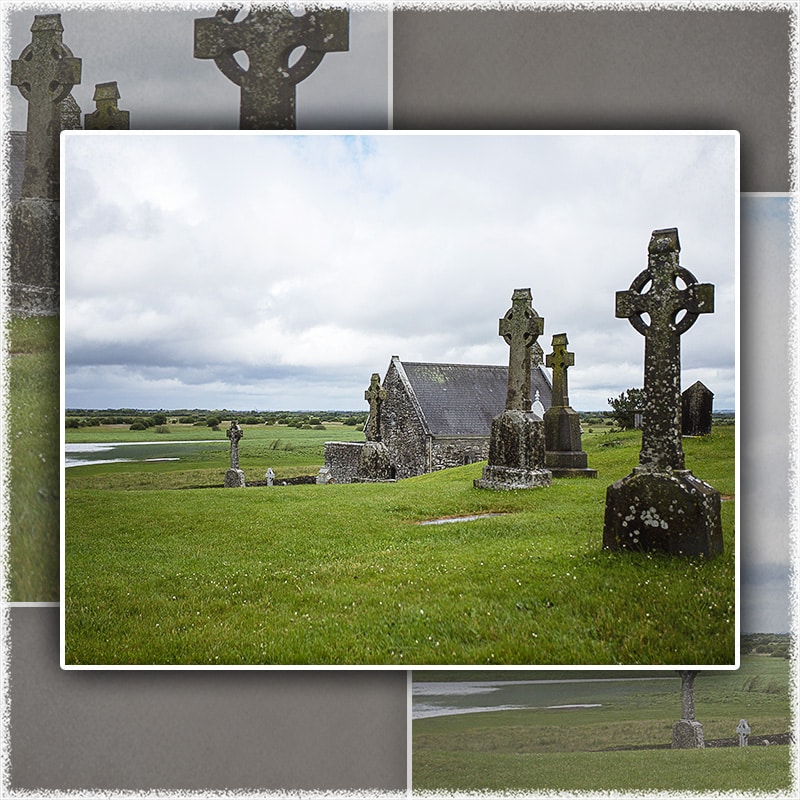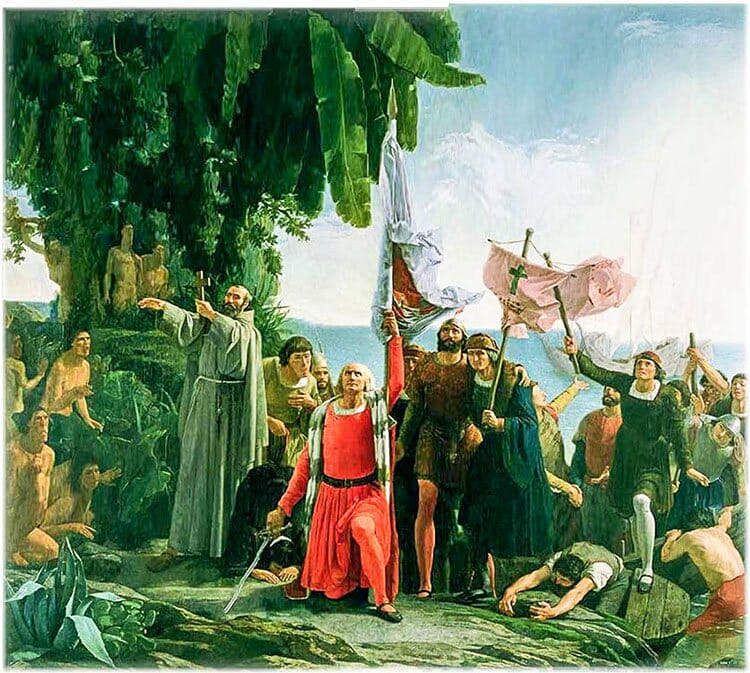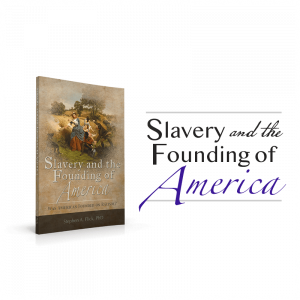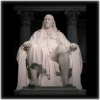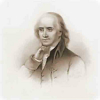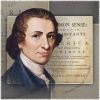Judicial Tyranny: The Return of King George’s Judges
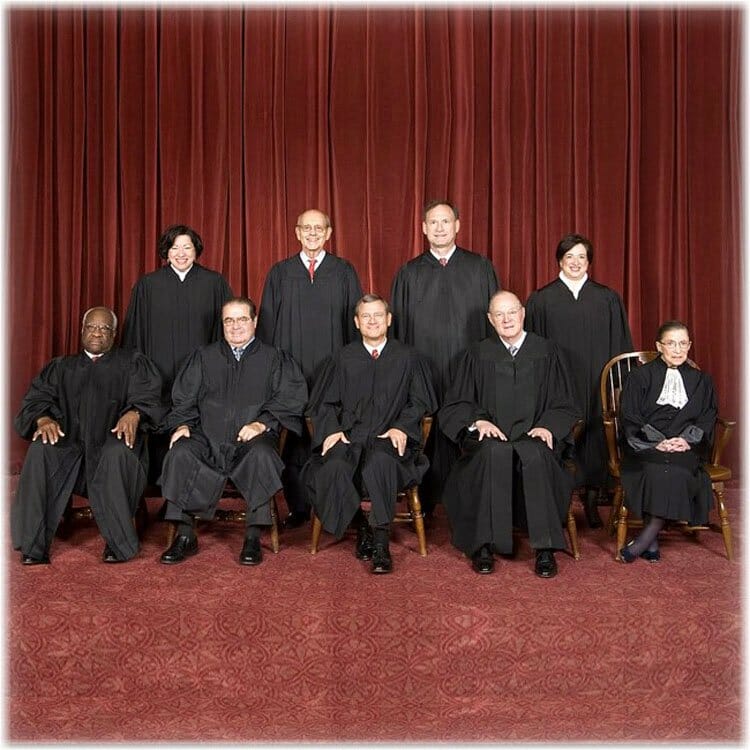
- 143
- 144shares
On June 26, 2015, the United States Supreme Court issued a 5-4 opinion—in the case of Obergefell v. Hodges—that same-sex couples could marry in all 50 states.[1] The Justices voting in favor of the decision included Anthony Kennedy, Ruth Bader Ginsburg, Sonia Sotomayor, Stephen G. Breyer, and Elena Kagan. The four Justices who opposed the move included Chief Justice, John G. Roberts, Antonin Scalia, Clarence Thomas, and Samuel Anthony Alito. Each of the four dissenting Justices issued their own statements of dissent, all of whom identified the lawless course of action taken by the other five members of the Court—a course which has become a regular pattern for the Supreme Court as well as other lower courts. In fact, by assuming this course of disregard for the duly enacted laws, these judges now play the part of tyrannical King George.[2]
While it is not true that judicial tyranny was the sole cause of the American Revolution, it was one of the most significant reasons Americans were willing to risk their lives in a bid for freedom. As early as 1765, Samuel Adams—known as the Father of the American Revolution—criticized the judges that King George III sent to America, so it comes as no surprise that the Signers of the Declaration of Independence soundly denounced these judges. Of the twenty-seven reasons cited in the Declaration of Independence for breaking political bonds with King George and the British Empire, number nine spoke of the perversion of justice in American courtrooms because of judges willing to execute the will of the King rather than the law of the land:
[9.] He has made Judges dependent on his Will alone, for the tenure of their offices, and the amount and payment of their salaries.
Other charges against the King in the Declaration of Independence also reveal his tyranny by the fact that the duly established American colonial governments and their courts were abolished at the whim of the monarch.[3] Like the tyrannical judges of King George, many American judges now routinely dismiss well-established laws and their interpretations that have denied such liberal interpretations for generations of Americans.
At the heart of the issue was the lack of objective truth that could be applied to all people. Rather, King George's judges executed King George's will—not the will of the people. At the heart of the contemporary same-sex issue is the complete lack of an objective standard of evaluation, which is the charge made by all four conservative dissenting judges.
Like many Christian seminaries and colleges of ministerial training, jurisprudence (or the legal profession) in America has been divorcing itself from its historical moorings, forcing the nation to flounder upon the seas of social and moral tyranny. Just as many Christian biblical and theological institutions have severed themselves from biblical mooring lines, so American jurisprudence in general, and many judges in particular, have severed their decisions from state and federal constitutions and have established legal opinions upon their own passions—which is the surest foundation for tyranny! For nearly three-quarters of a century, this lawlessness has grown throughout America because of two primary reasons.
Article Contents
Reason #1: Shift in Authority of American Law
Shift in Authority of Organization
Shift in Authority of Duty—How to Interpret
Reason #2: Shift in Origin of American Law
Christian Influence in the Declaration of Independence
Christian Influences in the State Constitutions
Reason #1: Shift in Authority of American Law
The first reason that many American courts have become tyrannical may be attributed to a perceived shift in the source of authority to construct laws. While it is not true that the Supreme Court can write laws, the effect of its decisions are very similar. Responsibility for making laws lies at the feet of the Congress, and the Constitution has invested neither the President nor the Supreme Court with authority to write laws.
Shift in Authority of Organization
It is a simple, yet a profound truth that the Supreme Court is not supreme. Contrary to contemporary belief that the Founding Fathers established three equal branches of government, the facts argue that the Supreme Court was originally intended to be the weakest of the three branches of American government.
It is not true that America's Founding Fathers believed that they were creating three equal branches of government when they formulated the Constitution. This fact may be substantiated in several ways. That the powers of the Supreme Court were to be limited is expressed in the fact that the legislative and executive branches were given far more responsibilities and authority by the Constitution. The Supreme Court's limited responsibility in American government can be seen in the fact that the duties and power given to the Supreme Court in the Constitution required the briefest description of the three branches. Add to this fact that the Founding Fathers stated that they intended that the Supreme Court should be very limited in its power. James Madison, Father of the Constitution, wrote in the Federalist Papers that were written to explain the importance of the Constitution:
. . .the judiciary, from the nature of its functions, will always be the least dangerous to the political rights of the Constitution. [T] he judiciary is, beyond comparison, the weakest of the three departments of power . . .[4]
One of the less conspicuous facts that the Supreme Court was to have far more limited power than accorded to it today may also be seen by the fact that no building was given to the Supreme Court. Not until 1935 was the present Supreme Court building occupied for use—146 years after the Constitution was put into effect. Originally, the Supreme Court convened for brief periods in buildings erected for other branches of government. The Founding Fathers fully intended to limit the power of the Supreme Court, not giving it the authority accorded to the other two branches of government. The reason being, the "Peoples House," or the Congress, was intended to have the greatest influence in the government of the nation, a fact that is evident in the prominence of the article describing the responsibilities of the Congress within the Constitution. Like the federal Constitution, most state constitutions also expressed this fact with similar expressions to the words of the Constitution, "We the people . . ."
In the contemporary mindset of Americans, it is widely believed that the opinions of the majority of the members of the Supreme Court must be carried out. However, United States history argues otherwise. In the well-known 1857 Dred Scott case, the Supreme Court denied Scott his requested freedom and returned him to the possession of his owner. This ruling by the Supreme Court did much to hasten the tragedy of the Civil War by inflaming passions. During the course of the War, Abraham Lincoln defied this ruling by issuing the Emancipation Proclamation in 1863. But, Lincoln was not alone in his defiance of the Supreme Court. Like Lincoln, others have defied or simply ignored the opinions of the Supreme Court, indifferent to its dictates, and it appears that because of the lawlessness of many courts, the act of nullifying these courts decisions should become a regular pattern for the rest of the nation.
The single most important word at the top of each Supreme Court decision is the term "opinion."[5] Many Americans credit the Supreme Court with the power to make laws, but the Constitution has not entrusted the Supreme Court with that privilege. Rather, the Supreme Court is only capable of rendering an "opinion" on laws created by state or federal legislatures, or other lesser legislative governmental powers.
The Congress has the authority to impeach members of the Supreme Court and lower federal courts but appears intimidated by the threats and swagger of the courts. The one important reason that the provision of impeachment was placed in the Constitution was to preserve the fundamental principle of "the consent of the governed." Provisions for impeachment of judges was left deliberately broad in the Constitution, allowing for removal for office for "misdemeanors" or "high crimes." Contrary to popular opinion, the Constitution does not guarantee a judge an office for life, but only for the duration of "good behavior," and usurping the right of the people to make law through their legislators by attempting to make law from the bench may not in the least be regarded as good behavior.[6]
Shift in Authority of Duty—How to Interpret
Since 1859 when Charles Darwin published his famous work, Origin of Species, the concept of evolution has been used as the justification of the slaughter of millions around the world.[7] Because of the American Civil War (from 1861 to 1865), the effect of Darwinism upon the United States was slowed, but not stopped. Toward the end of the nineteenth century, Darwinism's tentacles had wrapped themselves around the minds of leading legal scholars in America.
One of the most influential scholars to move American legal studies into a Darwinian frame of thought was Christopher Columbus Langdell. In 1870, Langdell was appointed Dean of Harvard Law School to reconstruct "the very way that the judicial branch functioned."[8] Under the historic means of judicial interpretation of American law, judges evaluated the words and context of the law itself, and a decision from a judge reading the same law in 2015 would be the same opinion as an opinion rendered on the same law in 1787. But under Langdell and others like him, law students were taught to ignore the original language of laws passed by Congress and signed by the President. Under Langdell's Darwinian philosophy, law students were taught to base their opinions upon the evolution of society, so that what is wrong today can be right tomorrow, and vice versa. These opinions based on changing society were to consider the ever-changing decisions of other like-minded judges and is known as the "case-law method" of rendering a judicial opinion; but critics of Langdell and his "case-law" disciples regard this method of making new laws from the judge's bench as, "judicial activism."[9] It is this philosophy of interpretation that Supreme Court Justices and lower court judges regularly use to dismiss historic interpretations of American law to impose their own arbitrary opinions upon America.
Though this reorientation in legal studies and interpretation of law took years to show up in America's courts, it did begin to appear in the 1940s and 50s, yielding devastating blows to American culture and morality under the ruse of "freedom."[10] Now, for nearly three-quarters of a century, the Supreme Court has been exercising powers completely inconsistent with the power given to it by the Constitution. It is long past time that the power of the Supreme Court (and all lower courts) be aggressively restrained to the limits of the United States Constitution and the constitutions of the states.
Reason #2: Shift in Origin of American Law
The second reason many American courts have become tyrannical may be attributed to a perceived shift in the origin of American laws, from God-given to man-granted laws. The first document to establish the American Colonies as a new and distinct nation was the Declaration of Independence and is the first of four documents known as the United States "Organic Laws." The other three documents whose principles other American laws may not violate were the Articles of Confederation (1777),[11] the United States Constitution (1787), and the Northwest Ordinance (1787).[12] In the Declaration of Independence and the state constitutions that followed the signing of the Declaration, a strong religious and Christian foundation was laid for American law.
Christian Influence in the Declaration of Independence
The first to sign the Declaration of Independence was John Hancock, President of the Continental Congress and son and grandson of Christian ministers. The writings that were most influential on the formation of the Declaration of Independence were written by Christian legal scholars who reflected an important stream of thought in their writings known as natural law, which, for the Christian, is the building material for natural theology. Christians believed that God the Creator established all creation upon laws that govern its wellbeing. From the smallest particles of matter to the orbits of the largest planets, America's Founding Fathers believed that divinely established laws governed all creation; and, they believed that the God that established laws to govern creation was the same God that established moral laws for the human race, which, if not observed led to destruction—as was the case for the natural world.
Some of the British Christian legal scholars whom America's Founding Fathers drew upon as sources of information concerning natural law were William Blackstone,[13] John Locke,[14] and Edward Coke, the last of these three being the greatest English legal scholar during the Elizabethan and Jacobean ages. These Christian English legal scholars taught that all human laws must be built upon the laws that God established when the world was created and by which the world continues to exist. Quotations from the writings of these scholars demonstrate this fact. In his well-known work, Commentaries on the Laws of England, the first of these three scholars, William Blackstone, writes that God's natural law is to be observed "over all the globe":
This law of nature, being coeval [or originating at the same time] with mankind and dictated by God himself, is of course superior in obligation to any other. It is binding over all the globe, in all countries, and at all time: no human laws are of any validity, if [they are] contrary to this; and such of them as are valid derive all their force . . . from this original [law of nature].[15]
Here William Blackstone, one of the greatest of Christian legal scholars, makes it clear that "no human laws are of any validity, if [they are] contrary to this"—the laws of God. That is, Blackstone taught that Christians were not bound to follow any laws or ruling that violated the laws of God.
It should be noted that the Signers of the Declaration of Independence made the same universal claims for natural law as did Blackstone when they wrote, "all men are created equal, that they are endowed by their Creator with certain unalienable Rights, that among these are Life, Liberty and the pursuit of Happiness." The teachings of universal natural law in Christianity found its way into the Declaration of Independence at this very point.
Discussing the same concept of the origin of human law and their relationship to the laws of nature, the great English legal scholar, Edward Coke, writes,
The law of nature is that which God at the time of creation of the nature of man infused into his heart, for his preservation and direction; and this is lex aeterna [or eternal law], the moral law, called also the law of nature.[16]
America's Founding Fathers did not deviate from the influence of Christian theology and the English legal scholarship. Alexander Hamilton, who was not quite twenty years old at the time, wrote a pamphlet titled, The Farmer Refuted.[17] In this pamphlet, Hamilton disclosed the American reliance on natural law when he quoted William Blackstone, saying that the natural law of the Creator is,
…an eternal and immutable law, which is indispensably obligatory upon all mankind, prior to any human institution whatever.[18]
Following these English scholars who taught that the God who established the laws that governed nature was the same God who established the laws that governed human relationships, the Signers of the Declaration of Independence established American law in the same natural law tradition when they expressed themselves with this simple phrase in the Declaration:
…the Laws of Nature and of Nature's God…
In fact, America's Founding Fathers identified in their English legal heritage a justification for the American Revolution that was dependent upon the use of natural law. As William Blackstone wrote, natural law "is binding over all the globe, in all countries, and at all time: no human laws are of any validity, if [they are] contrary to this." Because the Americans believed King George and the English Parliament were attempting to force laws on the American Colonies that were contrary to "the Laws of Nature and of Nature's God,"[19] they believed they were being forced to become rebels against God's laws. Rather than rebel against God, America's Founding Fathers chose to rebel against the King, and so the motto of the American Revolution became, "No king, but King Jesus!"[20]
Contrary to the arguments of secularists that Founding Fathers were themselves secular in the establishment of America, Thomas Jefferson insisted—as was expressed in the Declaration of Independence—that all true rights were gifts from God and did not originate with human government. He wrote:
And can the liberties of a nation be thought secure when we have removed their only firm basis, a conviction in the minds of the people that these liberties are of the gift of God? That they are not to be violated but with his wrath? Indeed I tremble for my country when I reflect that God is just; that his justice cannot sleep forever.[21]
This single quotation denies secularists the use of Jefferson in defense of their irreligious reinterpretation of American history.
Christian Influences in the State Constitutions
Prior to the signing of the Declaration of Independence and soon thereafter, the vast majority of the new states wrote new constitutions that even more clearly established the Christian doctrines of the Bible as influences shaping the government of each state. The charters that had been granted to each of the original colonies by the English monarchs were all clearly Christian, and the new constitution only continued that Christian legal tradition.[22] Just as secularists have fraudulently attempted to use Jefferson for their irreligious cause, they have also attempted to do the same with Benjamin Franklin.[23] It is possible to produce quotes of Christian affirmation from each of the state constitutions that demonstrate that each state was influenced by the morality and ethics of the Christian faith in the development of their laws, but only one example that is associated with one of the alleged "secular" advocates will be produced to deny secularists the use of Benjamin Franklin in their irreligious cause. The first constitution of Pennsylvania (which was completed two months after the signing of the Declaration of Independence) instituted the following requirements for those who would serve in her legislature:
And each member, before he takes his seat, shall make and subscribe the following declaration, viz:
I do believe in one God, the creator and governor of the universe, the rewarder of the good and the punisher of the wicked. And I do acknowledge the Scriptures of the Old and New Testament to be given by Divine inspiration.
. . .
Passed in Convention the 28th day of September, 1776, and signed by their order.
[Benjamin Franklin, President] [24]
Yes, Benjamin Franklin, as president of the Pennsylvania Constitutional Convention, signed into law religious and Christian doctrinal expectations to which Pennsylvania legislators were required to subscribe to hold their seats in the state legislature.
It is evident that at the time the colonies declared their independence from Great Britain and King George that secularism had no part in the formation of America's national government. Rather, both the Declaration of Independence and state constitutions were thoroughly Christian. It is evident that early American legislators believed that rights, privileges, and freedoms were ultimately God-given, not man-granted as is now advocated by the Supreme Court and many lower courts.
Since the 1940s and 50s, the Supreme Court has exercised tragic influence upon the government of the United States for two reasons. Its understanding of the origin and authority of law has shifted greatly from what America's Founding Father's intended. The most devastating of these two shifts concerns the understanding of the origin of law. King George believed that he was given a divine right to be the primary source of law—something that was reflected in the decision of his tyrannical judges. In his inaugural address, President John F. Kennedy accurately captured America's historic understanding of the foundation of law when he said,
. . . the rights of man come not from the generosity of the state but from the hand of God.[25]
One of the most important questions Christians should ask themselves when entering the election poll is, "How will my candidate affect the courtroom of America?" When judges violate the origin of American law or the extent of their Constitutional authority, it is time to cry for their impeachment! But, in addition, the cases in which these courts have demonstrated undue authority must be nullified! Judicial tyranny in American courts must end!
Summarizing the relationship of Christianity to the birth of America, President John Quincy Adams, who was a boy at the time of the Revolution, related the following:
"The highest glory of the American Revolution was this: it connected, in one indissoluble bond, the principles of civil government with the principles of Christianity. From the day of the Declaration ... they (the American people) were bound by the laws of God, which they all, and by the laws of the Gospel, which they nearly all, acknowledged as the rules of their conduct."[26]
America deserves to know its true heritage.
Please contribute today!
"Anchor Elements" are concepts, events, individuals, term, or other important component that is featured in this article and which acts as a reference point for use in other articles throughout our site.
No index entries found.
[1] "Obergefell v. Hodges" (June 26, 2015), Supreme Court of the United States (http://www.supremecourt.gov/opinions/14pdf/14-556_3204.pdf, July 1, 2015).
[2] "'Threat to Democracy': See the 4 Justices' Dissents on Gay Marriage Ruling," Fox News Insider (http://insider.foxnews.com/2015/06/26/quotes-scalia-thomas-roberts-alito-dissent-supreme-court-gay-marriage-ruling, June 26, 2015).
[3] Specifically, charges 13, 20, 21, 22, and 23 relate King George's disregard for the laws of the colonies and their legislative process.
[4] Federalist Papers, #78.
[5] "Supreme Court Of The United States, Syllabus, King Et Al. V. Burwell, Secretary Of Health And Human Services, Et Al.," Supreme Court of the United States (http://www.supremecourt.gov/opinions/14pdf/14-114_qol1.pdf, June 29, 2015).
[6] See David Barton, "Impeachment of Federal Judges," WallBuilders (http://www.wallbuilders.com/libissuesarticles.asp?id=104, July 1, 2015).
[7] See Paul Johnson, Darwin: Portrait of a Genius (New York: Viking Penguin, 2012), 125-136.
[8] Mark Sutherland, Judicial Tyranny: The New Kings of America, Rev. ed. ed. (St. Louis MO: Amerisearch, 2005), 89.
[9] Sutherland, Judicial Tyranny: The New Kings of America, 89.
[10] The term "freedom" is used as a ruse throughout the majority opinion: " Changed understandings of marriage are characteristic of a Nation where new dimensions of freedom become apparent to new generations." "Obergefell v. Hodges" (June 26, 2015), Supreme Court of the United States (http://www.supremecourt.gov/opinions/14pdf/14-556_3204.pdf, July 1, 2015), 2.
[11] On March 1, 1781, final concurrence by all thirteen states was received.
[12] The "Front Matter" of the United States Code Annotated identifies four pieces of American legislation that are "Organic Laws" for all other federal legislation. That is, the laws contained in these Organic Laws cannot be violated by other laws and must be observed by judicial opinions. Those four pieces of legislation that constitute the Organic Laws of America include the Articles of Confederation, Declaration of Independence, the Constitution, and the Northwest Ordinance. View reference online at this address: http://uscode.house.gov/browse/frontmatter/organiclawsandedition=prelim.
[13] Blackstone's Commentaries on the Laws of England was read extensively in America and was initially Abraham Lincoln's primary text for studying law.
[14] Locke's Two Treatises of Government was one of the most influential works.
[15] Quoted in, Matthew Spalding, We Still Hold These Truths : Rediscovering Our Principles, Reclaiming Our Future (Wilmington Del.: ISI Books, 2009), 35.
[16] Quoted in, Spalding, We Still Hold These Truths : Rediscovering Our Principles, Reclaiming Our Future, 35.
[17] Hamilton published this work in February of 1775. The previous year he wrote A Full Vindication of the Measures of Congress.
[18] Quoted in, Spalding, We Still Hold These Truths : Rediscovering Our Principles, Reclaiming Our Future, 35.
[19] See the first two paragraphs of the Declaration of Independence.
[20] ". . . sermons like those preached by the Reverend Peter Powers titled 'Jesus Christ the King,' gave rise to a sentiment that has been described as a motto of the American Revolution. Most Americans are unaware that the Revolution might have had mottoes, but many wars do (e.g., in the Texas' war for independence, it was 'Remember the Alamo'; in the Union side in the Civil War, it was 'In God We Trust'; in World War I, it was 'Remember the Lusitania'; in World War II, it was 'Remember Pearl Harbor'; etc.). A motto of the American Revolution directed against the tyrant King George III and the theologically discredited doctrine of the Divine Right of Kings (which asserted that when the king spoke, it was the voice of God speaking directly to the people) was simple and direct: 'No King but King Jesus!' Another motto (first suggested by Benjamin Franklin and often repeated during the Revolution) was similar in tone: 'Rebellion to Tyrants is Obedience to God.' "4th of July Article," WallBuilders (http://www.wallbuilders.com/libissuesarticles.asp?id=82
, June 27, 2015).[21] Emphasis added. Thomas Jefferson, Notes on the State of Virginia. A New Edition (Richmond, VA: J. W. Randolph, 1853), 174-75.
[22] Virginia (April 10, 1606; first Constitution, June 29, 1776; The Virginia Declaration of Rights, June 12, 1776);
Massachusetts (Mayflower Compact, November 21, 1620; First Constitution, June 15, 1780);
New Hampshire (Began in 1623, finally becoming colony in November 7, 1691); 1776 Constitution);
New Jersey (originally New Netherlands, 1623; First Constitution, July 2, 1776);
New York (originally New Amsterdam, 1624; First Constitution, April 20, 1777);
Maryland (1633; First Constitution, November 11, 1776);
Rhode Island (1636; 1663 Royal Charter continued in effect until First Constitution in November 5, 1842);
Connecticut (Fundamental Orders of Connecticut, January 15, 1639; First Constitution, September 16, 1818);
Delaware (originally New Sweden, 1638; First Constitution, September 20, 1776);
North Carolina (1653; Declaration of Rights and First Constitution, December 18, 1776);
South Carolina (1663; First Constitution, March 26, 1776, changed March 19, 1778);
Pennsylvania (1682; First Constitution, September 28, 1776);
Georgia (1732; First Constitution, February 5, 1777).
[23] See our article, "Benjamin Franklin: Advocate of Our Christian Heritage," https:/benjamin-franklin/.
[24] Franklin's signature was abbreviated, "BENJ. FRANKLIN, Prest." See, "Constitution of Pennsylvania - September 28, 1776," Yale Law School, Lillian Goldman Law Library (http://avalon.law.yale.edu/18th_century/pa08.asp, June 27, 2015).
[25] John Adams, and United States ., Inaugural Addresses of the Presidents of the United States From George Washington 1789 to Richard Milhous Nixon 1973 (Washington, DC: [s.n.], 1973); quoted in Sutherland, Judicial Tyranny: The New Kings of America, 88.
[26] From July 4, 1821.
Judicial Tyranny
Judicial Tyranny
Judicial Tyranny
Judicial Tyranny
Judicial Tyranny
Judicial Tyranny
Judicial Tyranny
Judicial Tyranny
Judicial Tyranny
Judicial Tyranny
Judicial Tyranny
Judicial Tyranny
Judicial Tyranny
Judicial Tyranny
Judicial Tyranny
Judicial Tyranny
Judicial Tyranny
Judicial Tyranny
Judicial Tyranny
Judicial Tyranny
Judicial Tyranny
Judicial Tyranny
Judicial Tyranny
Judicial Tyranny
Judicial Tyranny
Judicial Tyranny
Judicial Tyranny
Judicial Tyranny
Judicial Tyranny
Judicial Tyranny
Judicial Tyranny
Judicial Tyranny
Judicial Tyranny
Judicial Tyranny
Judicial Tyranny
Judicial Tyranny
Judicial Tyranny
Judicial Tyranny
- 143
- 144shares

